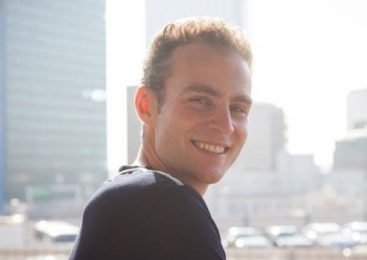Last year, I covered the seed-round of London-based Causaly, a machine learning company that was teaching computers to read. The company is developing a natural language processing AI that seeks to read, understand and interpret all biomedical knowledge ever published. The scale of the problem Causaly is trying to solve grows enormously each day. Every month, over 100,000 new biomedical articles are published to an existing library of over 30 million research papers. Working with the support of existing partners, including the Copyright Clearance Center, Wiley and Sage, the platform is enabling faster and more transparent decision-making for professionals across the biosciences, from drug discovery to clinical trials.
In November, the firm announced the $5M close of their Series-A funding round. The round was led by Pentech with participation from existing investors Marathon Venture Capital as well as existing angel investors. Speaking of their firms investment, Pentech partner Marc Moens said, “We like to invest in category-leading companies. We believe that Causaly is building a unique product whose ability to interpret unprecedented amounts of complex information and accelerate time-to-insight can create tremendous value in the biomedical field and beyond.”
After learning about the firm's newest investment, I thought it would be a great opportunity to catch up with the Causaly team to hear more about what they've been working on over the past year. I connected with Yiannis Kiachopoulos, Causaly's co-founder & CEO to hear what's next on the horizion for Causaly. An edited version of our conversation follows. 
Hi Yiannis! Congratulations on your new funding round. It looks like there have been many new developments since we last caught up with you!
Yes, so many things!
Can you walk us through what you and your team have been working on since your seed funding last year?
Since our seed round, we have built a stellar team of 10 people in London and in Athens (we will be 13 in January already) and were heavily working on the product in two fronts. First, we've improved the understanding for our Machine-reading. This new language understanding enables us to better serve those in epidemiology who regularly search for evidence on the prevalence and incidence of a disease. Secondly, we've integrated more data sources into Causaly from sources such as clinicaltrials.gov. This enables our users not only to retrieve evidence from academic literature, but also compare theses examples with evidence from clinical trials. We continue to integrate more data sources every month.
We've also started a new collaboration with Der Balgrist university hospital in Switzerland and are in the early phases of exploring how Causaly can assist further in supporting clinical research and clinical care.
When we last spoke, Causaly’s machine learning algorithm was able to match more than 100 million causal associations from published academic literature. How do those numbers compare today?
With our improvements in machine-reading performance, these numbers have increased to 150 million semantic interactions. While this number has also increased due to the greater number of academic publications since the last year, our machine-reading algorithms have improved considerably when it comes to identifying relevant evidence. For example, we've added a new class of evidence, "observations" to our existing knowledge hierarchy, which allows our users to better investigate their assumptions and inform their hypothesis testing.
When it came to raising the next round of funding, how did you know this investment team would be the right partners for Causaly?
For our Series A round, we were happy to have our existing investor, Marathon VC and Angels participate, as they have been great partners and supporters over the past year. Choosing the new lead investor was very important. Pentech Ventures has proven experience in working with deep tech companies and SaaS. Pentech partner Marc Moens (who led the round), has deep personal expertise in Natural Language Processing technology and its commercialization in the B2B SaaS domain.
What advice would you share with other founders when it comes to raising a Series A? How does this compare to raising a seed round?
In many ways, the process of raising a Seed round is similar to Series A in terms of process and preparation. While investors are looking for different things in A-rounds (as compared to seed), for us, the process was very similar. Founders should be prepared that fundraising is very time-consuming. During the fundraising process, other important responsibilities such as product/customers/team might not get as much attention as before. But having the right co-founding team makes all the difference. My co-founder Artur was a great support and gave me the confidence that everything would be kept running smoothly while I was focusing on the financing round. This was very important for me.
What are your plans for your new investment? What is next on the horizon for Causaly?
Teaching computers to read and understand biomedical knowledge is a difficult task. Our aim is to reach human performance for understanding single sentence causality, as well as to visualize this evidence with network graphs. We will focus even more on the visualization aspect of evidence to help our users make sense of these vast amounts of biomedical evidence faster and more comprehensively. With this latest funding, we will continue to build a great product that helps our customers succeed in the difficult knowledge challenges of biomedicine. We will use the capital to grow the team, both in technology and customer success roles. We will also be moving into a bigger office to have a great environment in place for our team.



Would you like to write the first comment?
Login to post comments